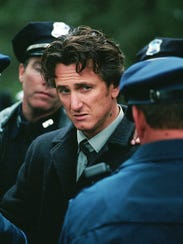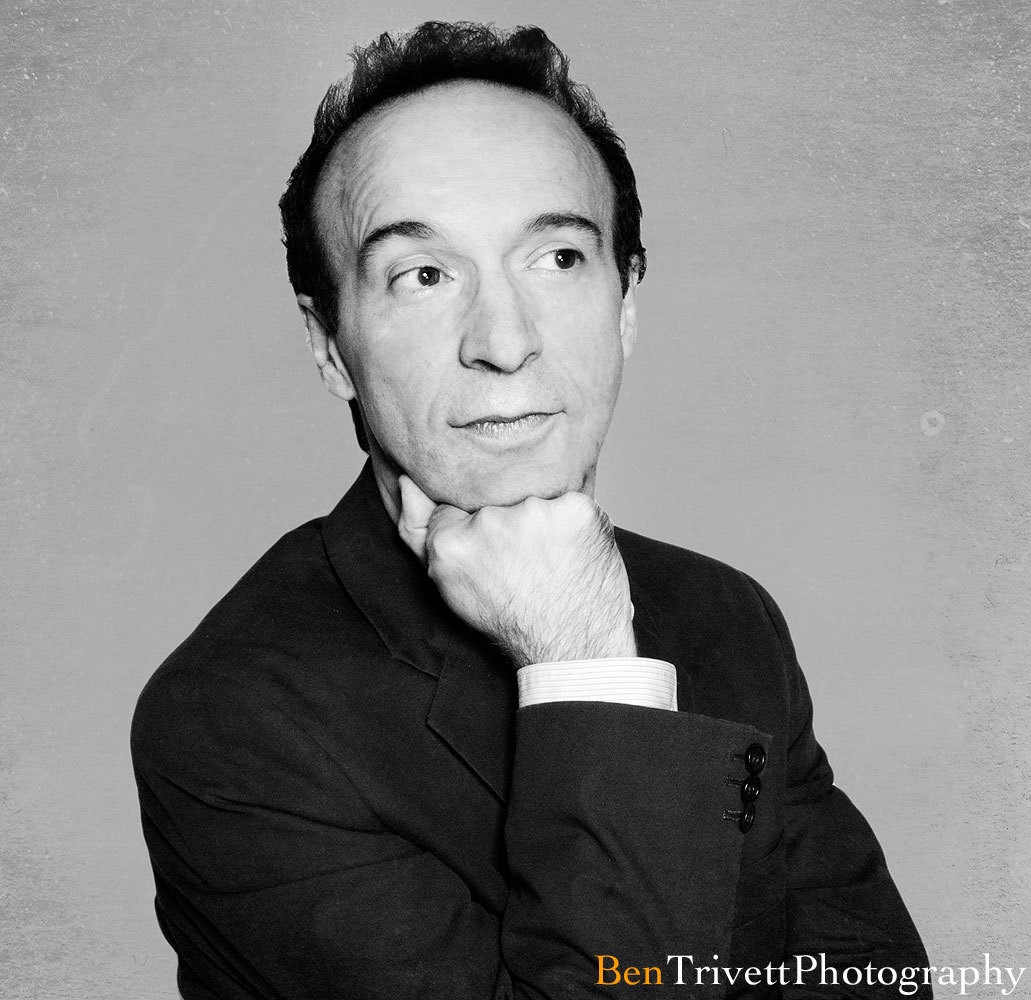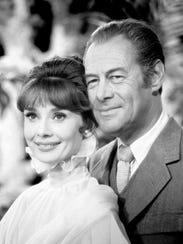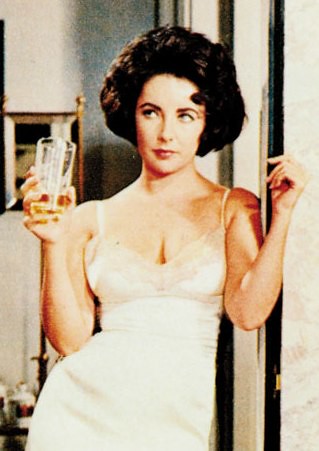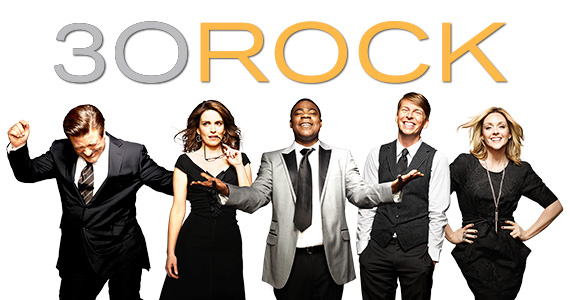
103 Primetime Emmy Nominations and 16 wins. The 21st best-written television series of all time, according to the Writers’ Guild of America. One of the best series finales in the history of television. Yet 30 Rock struggled to attract viewers throughout its run.
I am dedicating this post to Tina Fey’s laudable wit and satire just as I dedicated my Jefferson Smith post to Amy Poehler’s. Watching The Network and discussing it on Wednesday, I couldn’t help but be reminded of 30 Rock and its ingenious way of poking fun at itself. It’s a show on NBC about making a show on NBC. Tina Fey is the lead writer for the show, and plays the lead writer of the show that’s on the show. Genius! And the show touches on every single topic we discussed on Wednesday: the news oligopoly, the obsession with ratings, the political horse race, and absurd TV programming.
One of the plot lines of 30 Rock, shown largely through the existential struggles of network executive Jack Donaghy (played by Alec Baldwin), is the acquisition of NBC from its previous owner, General Electric, by the “fictitious” cable company called Kabletown. (Ahem, Comcast; Fey is poking fun at the actual sale of NBC from GE to Comcast that happened during the show’s run.) To satirize the absurd corporate structures both before and after the sale of the network, Fey designates Jack to be both the head of the network and the head of the Microwave division under GE, losing the latter position after NBC is sold. Jack struggles with the loss of this position, and the loss of his abilities to “create” something, coming up with numerous ideas and schemes to prove himself to his new boss at Kabletown.
One of his first ideas is couches. Just like a cable company buying a network is vertical integration, Jack decides that a network selling couches would further the vertical integration. This crazy idea aside, Kouchtown fails because of shoddy “American engineering” that creates couches so uncomfortable, they are purchased by law enforcement as interrogation chairs. But the show succeeds in using an absurd idea to pass on an important message: our “free” media is being held in fewer and fewer hands.
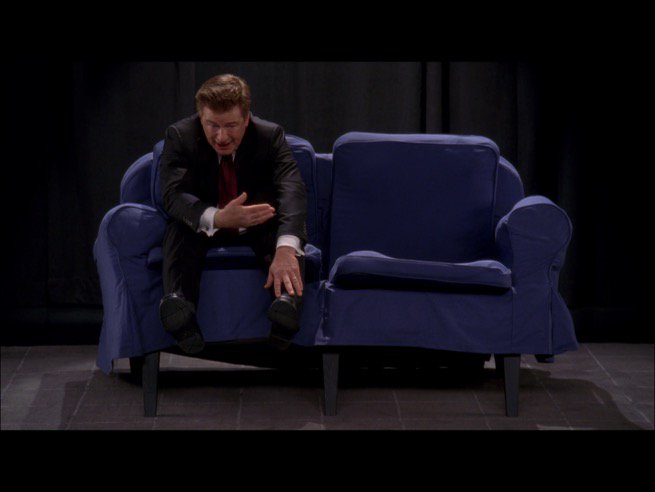
While 30 Rock struggled with ratings, TGS, the fictional show on the show likewise struggled, and Fey wrote in increasingly absurd demographics to poke fun at TV’s obsession with ratings. Here are some of my favorites:
- Liz Lemon (Fey’s writer character) suggests that they will not be able to get the show done for Friday, to which Jack replies, “Well, that will really disappoint your key demographic of drunken 11-year-olds.”
- After introducing a new environmentalist mascot called Greenzo, Jack remarks, “Look how Greenzo’s testing! They love him in every demographic: colored people, broads, fairies, commies. Gosh, we gotta update these forms.”
- NBC’s new show about teenage boys on an island with hot moms, MILF Island has a new star called Deborah. Jack comments, “And Deborah is testing off the charts in the most profitable demographics: Soccer moms, NASCAR dads, white collar pervs and the obese.”
During the 2012 election, Fey also pokes fun at politicians and the people who impersonate them. She introduces a character called Governor Dunston, played by one of the cast members, Tracy Morgan, and then uses Morgan’s character, Tracey Jordan to satirize Dunston on TGS. Dunston is an absurd Republican politician and presidential candidate, promoting policies that terrify liberal Liz, while frequently humiliating himself in public. Because of Dunston and Jordan’s physical resemblance (they are played by the same actor), the Dunston skits put TGS’s ratings through the roof. However, the Dunston skits on TGS also increase the Republican Governor’s popularity, creating a moral dilemma for Liz: if she continues to write the skits, her show will get great ratings, but a foolish politician will get more votes for the presidential race; if she doesn’t write the skits, her show will suffer, but the candidate won’t benefit from the free media attention. The plot ingeniously pokes fun at Fey’s experience impersonating Sarah Palin, and eerily foreshadows the recent obsession of the media with Trump (it has helped their ratings, but has also helped Trump’s popularity).

All 7 beautiful seasons of 30 Rock are on Netflix and I encourage everyone to watch them. (I personally have binge-watched the show twice so far.) The pilot has received a lot of criticism, and the show takes a couple of episodes to find its comedic footing, but once you’re halfway through season 1, you can enjoy one of the best shows in TV history.
Here are some of my favorite quotes:
- “Affirmative action was designed to keep women and minorities in competition with each other to distract us while white dudes inject AIDS into our chicken nuggets.” -Tracy
- “No, Tracy took advantage of my white guilt, which is supposed to be used only for good, like over-tipping and supporting Barack Obama.” -Liz
- “The only thing I will be discussing with the House Subcommittee on Baseball, Quiz Shows, Terrorism, and Media is vertical integration.” -Jack
- “Okay, in my defense, every April 22nd I honor Richard Nixon’s death by getting drunk and making some unpopular decisions.” -Jack
- “Every Tina I know is a judgmental bitch.” -Liz
- “Oh, no, The Peace Corp. Lawrence Peace’s corporation. We drilled for oil in gorilla habitats.”-Avery
Here are the articles I used to write this post (and they are both worth a read!):
How Tina Fey’s ’30 Rock’ Lasted Seven Seasons and Changed the Game for Female Comedy Creators
10 Episodes that Show how 30 Rock Tweaked the Sitcom Formula






